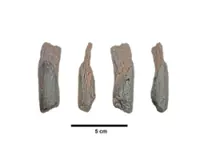EVERY day, as he has done for the past 20 years, Carlos makes the rounds collecting bets in central Havana for “la bolita” – a clandestine national lottery that provides a sliver of hope for Cubans struggling to make ends meet.
Betting has been illegal on the communist island for the past 66 years, but “la bolita” has persisted, and even grown, as Cubans see few other ways out of economic misery.
“People are betting more than ever,” said Carlos, who withheld his real name for fear of getting into trouble.
Carlos, in his 40s, is a “pointer” – the human interface for Cubans who place bets that start at just a few pesos that they hope will multiply with the intervention of Lady Luck.
There are also “collectors” and “bankers” who handle daily bets amounting to millions of Cuban pesos nationally and disburse the winnings neighbourhood by neighbourhood in a system with no oversight and based entirely on trust.
Carlos points to bets rising in lockstep with a growing hopelessness as Cuba battles its worst economic crisis in 30 years, with shortages of food and medicines, sky-rocketing inflation and daily power outages.
“When you know that your salary isn’t enough to make it to the end of the month, the only option left is to bet on luck,” he said.
The average salary in Cuba hovers at around US$42 (RM185) per month.
As there is no official draw, “la bolita” is decided by twice-daily lottery results from Florida, Georgia or New York.
To find out if they won, Cubans follow the lotteries on the Internet, via chat groups on mobile apps, such as Facebook, WhatsApp or X.
The arrival of mobile Internet in Cuba in 2018 injected new life into the lottery that has been played here since the 19th century – an adaptation of gambling games introduced by Chinese and Italian immigrants.
It is played with numbers from 1 to 100, each with an association such as a horse for 1 or a butterfly for 2.
Players often rely on dreams or past experiences to choose their numbers and in the time of Fidel Castro, anyone lucky enough to set eyes on the revolutionary leader – nicknamed ‘The Horse’ – would elect the number 1 as part of their grid.
Islander Rogelio, 47, said he won the equivalent of US$2,250 in two weeks recently – a sum equivalent to 61 times his monthly salary as a civil servant.
“Good luck can change your life,” he said.
But Ruben, 32, said he had not won anything in a while.
“People no longer say good morning. They ask you which numbers came out,” he said.
Carlos concedes there is a problem of people becoming deeply indebted because of “la bolita”.
He himself makes a living from a 10% cut of each day’s takings, but is forced to ply his trade in obscurity.
Castro banned gambling as soon as he took power in 1959, and the country’s penal code prescribes a penalty of three years in prison and a fine of 300,000 pesos (about US$2,500) for anyone who “performs activities as a banker, collector ... or promoter of illicit games”.
It was not always like this.
In the 1940s and 1950s, gambling had its golden age in Cuba, when Havana, with its casinos, betting houses and game rooms linked to the American mafia, became the most important gaming centre in the Caribbean.
Castro’s revolution ended the dream of gangsters Meyer Lansky and Lucky Luciano, who had enjoyed close ties with dictator Fulgencio Batista, of building a chain of hotel-casinos on Havana’s Malecon waterfront, American journalist TAJ English wrote in his 2007 bestseller Havana Nocturne.
Las Vegas took over instead, and has since become one of the largest gambling centres in the world. — AFP





